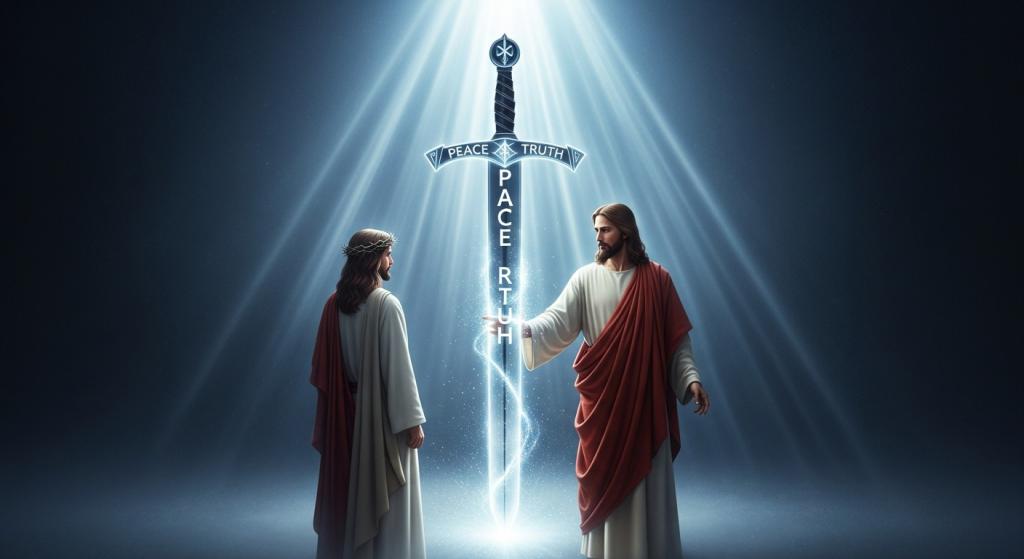How to create change series
Most people look at problems in our community or world and think the task is too big for one person, but this series will help those who want to be more active to effectively organize movements and create needed change.
Jesus and his followers turned the world upside down. Leaders opposed change, wanting everything to stay as it was, just as they had killed earlier prophets. Many shunned Jesus’ message, holding onto their own self-serving traditions and interpretations. Change wasn’t received well by people comfortable with their way of thinking about God and acceptable behavior.
This series is based on my book, Unleash Movements that Matter: Break through barriers to change, which you can find for free on my Website. It’s also soon to be a discussion book.

Reference verses:
“Glory to God in the highest, And on earth peace among men with whom He is pleased.” – Luke 2:14
“Do not think that I came to bring peace on the earth; I did not come to bring peace, but a sword. For I came to set a man against his father, and a daughter against her mother, and a daughter-in-law against her mother-in-law; and a man’s enemies will be the members of his household.” – Matthew 10: 34-36
“For you are all sons of God through faith in Christ Jesus. For all of you who were baptized into Christ have clothed yourselves with Christ. There is neither Jew nor Greek, there is neither slave nor free man, there is neither male nor female; for you are all one in Christ Jesus.” – Galatians 3:27-29
These verses show that the path to peace is complicated. While we are all the same in God’s eyes, created in God’s own image, the intent of Jesus’s birth was to bring peace, but his message would divide people, even in their own families. The old ways have to give way to new ones that are more representative of God’s will.
Why is change so difficult to accept and to make happen?
When I was young in the 1960s, I thought the world was very unfair. Like many of my peers of that time, I hoped to make it more fair. But we knew little about how to make change and were drowned out by more powerful voices. Demonstrations worked.
The country roiled in those days with the Watts riots, and endless demonstrations by whites and blacks over black discrimination. State and local governments in many areas did everything they could to stop integration.
The opposition to the war in Vietnam tore up college campuses, and in Ohio the National Guard fired on student demonstrators in an attempt to silence them.
The lesson from race and war: government decisions weren’t to be opposed.
The women’s movement kept many men on edge who didn’t want change in the household structure, even though their wives had to work to make ends meet. Things haven’t changed much today. Many men still expect women to work and raise kids and keep the household running smoothly.
Divorce slowly gained acceptance so that people weren’t trapped in hopeless and abusive relationships.
Around the nation, gays were gaining rights in municipalities, while some of my Navy peers thought it fun to go out and “roll queers.” Since I had worked with many gays, in my heart I knew they were as good as anyone else, even though I hadn’t yet studied the various interpretations. I hated the idea of harming any people.
That period of history taught a clear lesson: People liked the way things were and opposed change. Many simply weren’t going to change, and we still hear echoes of that resistance to these social changes today.
People hate change, but there is hope
Studies from around the world show that people universally hate change. Since 1900, the pace of change has accelerated at an exponential rate, leading to widespread resistance.
Studies also show that once change has taken place, it is slowly adopted by the majority. Resistance may be strong and even violent, as in the adoption of civil rights for people of all colors.
Complicated Issues, Diverse Opinions
In the U.S., a majority of Americans believe all people should have an equal opportunity to succeed regardless of race, but there’s a strong division over whether that’s a reality. As of August 2025, a Gallup poll found that 64% of Americans say racism against Black people is widespread in the United States, which is a view shared by 83% of Black adults.
The complexity of the issue is highlighted by the differing views on what should be done. A May 2025 Pew Research Center survey showed that 43% of Americans feel the country has not gone far enough on racial equality, while 18% of all adults believe we have gone too far. This divide is even more pronounced when broken down by race and political party, with 82% of Black Americans and 71% of Democrats saying the country hasn’t gone far enough.
This issue remains complicated. The situation is not helped by the mutual distrust that exists between many people of color and the police. This issue is worsened by violent reactions and is often inflamed by the press and activists.
The Gallup Podcast | Needs and Challenges Facing Black Parents in the United States
The drivers of change
Change is driven by technology and social pressure. Even the U.S. Constitution is a pillar of rights that is a constant thorn in the side of those who don’t want change.
The US Declaration of Independence Preamble states: “We hold these truths to be self-evident, that all men are created equal, that they are endowed by their Creator with certain unalienable Rights, that among these are Life, Liberty and the pursuit of Happiness.”
Since 1776 this idea has been a driving force in US thought, and helped form the US Constitution, with the Preamble: “We the People of the United States, in Order to form a more perfect Union, establish Justice, insure domestic Tranquility, provide for the common defense, promote the general Welfare, and secure the Blessings of Liberty to ourselves and our Posterity, do ordain and establish this Constitution for the United States of America.”
The Preambles establish the documents’ intent, which heavily influences how courts interpret laws, especially where there is ambiguity. Sadly, more recent Supreme Court rulings have relied more on judicial interpretation. Our “Great Experiment with Democracy” is in peril unless younger generations act to put us back on the course of social justice, which was the main message of the prophets and of Jesus, and the intent of the Declaration of Independence and Constitution.
It’s all about attitudes
Working with people since the 1960s and studying personal and social psychology (attitude change), has shown me beyond any doubt that few people are logical. Examining our thoughts and actions isn’t something most of us do; we react based on our attitudes. Attitudes, in turn, are based on our experiences—especially those driven by emotion—and have little to do with our beliefs.
You can’t force attitude change. I can’t make anyone change their mind, and even Jesus couldn’t force people to change theirs. I’ve seen this in hundreds of focus groups. Focus groups reveal likely actions based on attitudes, but they rarely modify them.
But the good news is, just as a huge portion of the world resonates with Jesus’ message, a huge portion of the world resonates with the need for many changes.
Conclusion
Change is essential to achieving “a more perfect Union, establish Justice, insure domestic Tranquility, provide for the common defense, promote the general Welfare, and secure the Blessings of Liberty to ourselves and our Posterity,” and to secure the abundant life Jesus promised us through improved relationships with others.
An example of how the struggle for difficult change can bring peace is the current state of people of color in the U.S. compared to the days of slavery. There will always be differences of opinion, and peace isn’t won by backing off; it’s a struggle that causes pain. Peace is difficult to achieve, but it’s worth the pain and struggle.
Of course there is great resistance to change. People who make change have to be shrewd*, push hard, and especially have to understand how to make change. When they do, it works.
* “… cunning as serpents and yet as innocent as doves.” Matthew 10:16
In this series I’ll explain how to make change, elaborate some on where it can’t be made. And will look at some issues that will either spell the death of democracy or make us a much better world.
For a limited time, get my book free, Unleash Movements that Matter: Break through barriers to change.
“Our answer is God. God’s answer is us. Together we make the world better.” – Dorian Scott Cole
“With hate we have more to lose than gain. Break the cycle.” – Dorian Scott Cole
Author’s website: DorianScottCole.com











